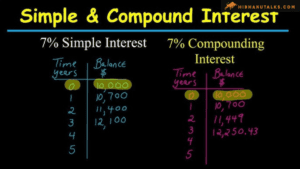
Understanding the Basics of Mutual Funds
Contents
- 1 Mutual funds meaning
- 1.1 Understanding the Basics of Mutual Funds
- 1.1.1 What is a Mutual Fund?
- 1.1.2 How Do Mutual Funds Work?
- 1.1.3 Types of Mutual Funds
- 1.1.4 Benefits of Investing in Mutual Funds
- 1.1.5 Risks Involved with Mutual Funds
- 1.1.6 How to Invest in Mutual Funds
- 1.1.7 Conclusion:
- 1.1.8 FAQs:
- 1.1.8.1 1.What is a mutual fund?
- 1.1.8.2 2.How do mutual funds work?
- 1.1.8.3 3.What are the different types of mutual funds?
- 1.1.8.4 4.Is investing in mutual funds safe?
- 1.1.8.5 5.What is a Systematic Investment Plan (SIP)?
- 1.1.8.6 6.How do I choose the right mutual fund?
- 1.1.8.7 7.What are the benefits of mutual funds?
- 1.1.8.8 8.Can I lose money in mutual funds?
- 1.1.8.9 9.What is the minimum amount needed to invest in mutual funds?
- 1.1.8.10 10.How are mutual funds taxed?
- 1.2 Mutual funds meaning
- 1.3 Inox Wind Secures 550 MW Project as Shares Surge 400% in 12 Months!
- 1.1 Understanding the Basics of Mutual Funds
Mutual funds meaning
Understanding the Basics of Mutual Funds
Investing in mutual funds has become a popular choice for both beginners and seasoned investors. But what exactly are mutual funds, how do they work, and why should you consider them for your financial portfolio? In this comprehensive guide, we’ll break down the basics of mutual funds in simple terms.


What is a Mutual Fund?
A mutual fund is a type of investment vehicle that pools money from multiple investors to invest in a diversified portfolio of stocks, bonds, or other securities. These funds are managed by professional fund managers who make investment decisions on behalf of the investors. Mutual funds are designed to offer small investors access to professionally managed portfolios at a relatively low cost.
How Do Mutual Funds Work?
Mutual funds operate on a simple principle: collective investment. Here’s how the process works:
- Pooling of Funds: Investors contribute money, which is pooled together into a single fund.
- Investment Decisions: A fund manager uses the pooled money to buy a diversified portfolio of assets (such as stocks, bonds, or other securities).
- Returns and Risks: The returns from the mutual fund are based on the performance of the underlying assets. The gains (or losses) are distributed proportionally among investors, depending on how much they have invested.
- NAV (Net Asset Value): Mutual fund units are bought and sold based on the NAV, which represents the value of one unit of the fund. NAV is calculated by dividing the total value of the fund’s assets by the number of outstanding units.


Types of Mutual Funds
Mutual funds come in various types, each suited to different investment goals and risk appetites. The most common types include:
- Equity Funds: These funds invest primarily in stocks and are considered high-risk, high-return investments. They are ideal for long-term investors seeking capital growth.
- Debt Funds: These funds invest in fixed-income securities like government bonds, corporate bonds, and other debt instruments. They offer lower risk and steady income, making them suitable for conservative investors.
- Balanced Funds: Also known as hybrid funds, balanced funds invest in both equities and debt instruments, offering a balanced approach to risk and reward.
- Index Funds: These funds aim to replicate the performance of a specific stock market index (such as the S&P 500). They are passively managed, meaning they have lower management fees.
- Money Market Funds: These funds invest in short-term, high-quality debt securities like Treasury bills and commercial paper. They are low-risk, low-return investments ideal for parking cash for short periods.


Benefits of Investing in Mutual Funds
Mutual funds offer a range of benefits that make them an attractive option for many investors:
- Diversification: Mutual funds invest in a variety of assets, which helps spread out risk. Instead of relying on the performance of a single stock or bond, you’re exposed to a broad portfolio.
- Professional Management: Fund managers handle the day-to-day investment decisions, allowing investors to benefit from professional expertise without needing deep financial knowledge.
- Liquidity: Mutual fund units can be easily bought and sold, offering liquidity to investors. Most funds allow investors to redeem their units at any time based on the current NAV.
- Affordability: Mutual funds offer small investors the opportunity to invest in a diversified portfolio without needing a large amount of capital. Some funds allow investments with as little as ₹500 or $10.
- Tax Benefits: In some countries, certain types of mutual funds, like ELSS (Equity Linked Savings Scheme), offer tax deductions under specific sections of the income tax law.


Risks Involved with Mutual Funds
While mutual funds offer several benefits, they are not without risks. Understanding these risks can help investors make informed decisions:
- Market Risk: Since mutual funds invest in market securities (stocks, bonds, etc.), the value of the investments can fluctuate with market conditions. A market downturn can reduce the NAV of your mutual fund units.
- Interest Rate Risk: Debt funds are particularly sensitive to changes in interest rates. When interest rates rise, the value of bonds in the fund’s portfolio may decline, affecting returns.
- Credit Risk: This applies to debt funds, where the risk is that the issuer of a bond may default on interest payments or repayment of principal.
- Liquidity Risk: In rare cases, certain mutual funds may face liquidity issues, making it difficult for investors to redeem their units immediately.


How to Invest in Mutual Funds
Investing in mutual funds is relatively simple and can be done through various channels:
- Directly Through the AMC (Asset Management Company): Investors can invest directly with the mutual fund company either online or in person.
- Through a Broker or Distributor: Financial advisors, brokers, or third-party platforms often offer mutual fund investment services for a fee.
- SIP (Systematic Investment Plan): This allows investors to invest a fixed amount at regular intervals, which helps in rupee cost averaging and reduces the impact of market volatility.
- Lump Sum Investment: Investors can also invest a one-time lump sum amount in a mutual fund.


Conclusion:
Mutual funds are a flexible, diversified, and professionally managed investment option, making them suitable for a wide range of investors. Whether you’re a beginner looking to start small or a seasoned investor aiming to diversify your portfolio, mutual funds offer a variety of options to meet your financial goals.
FAQs:
1.What is a mutual fund?
A. A mutual fund pools money from various investors to invest in a diversified portfolio of stocks, bonds, or other securities.
2.How do mutual funds work?
A. Fund managers invest pooled money in different assets, and the returns are shared among investors based on their investment amount.
3.What are the different types of mutual funds?
A. Common types include equity funds, debt funds, balanced funds, index funds, and money market funds.
4.Is investing in mutual funds safe?
A. Mutual funds carry risks depending on the assets they invest in, but diversification reduces the overall risk.
5.What is a Systematic Investment Plan (SIP)?
A. SIP allows you to invest a fixed amount in mutual funds at regular intervals, helping you invest consistently.
6.How do I choose the right mutual fund?
A. Choose based on your financial goals, risk tolerance, and time horizon. Consult a financial advisor if necessary.
7.What are the benefits of mutual funds?
A. Benefits include diversification, professional management, affordability, liquidity, and potential tax savings.
8.Can I lose money in mutual funds?
A. Yes, mutual funds are subject to market risks, and there is no guarantee of returns.
9.What is the minimum amount needed to invest in mutual funds?
A. Some mutual funds allow investments as low as ₹500 or $10.
10.How are mutual funds taxed?
A. Taxation varies by country and the type of mutual fund. Certain funds may offer tax-saving benefits.
Mutual funds meaning





















2 comments